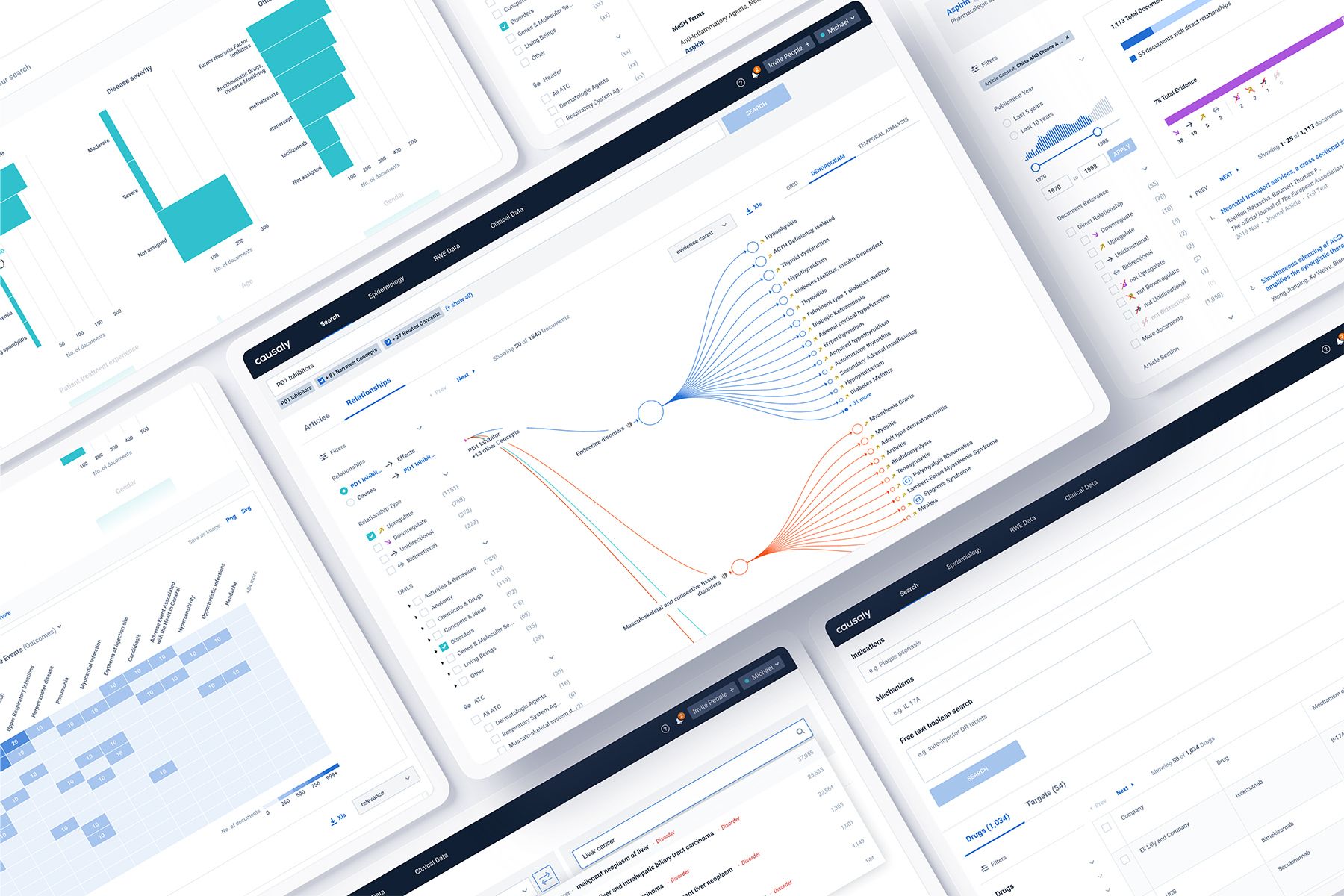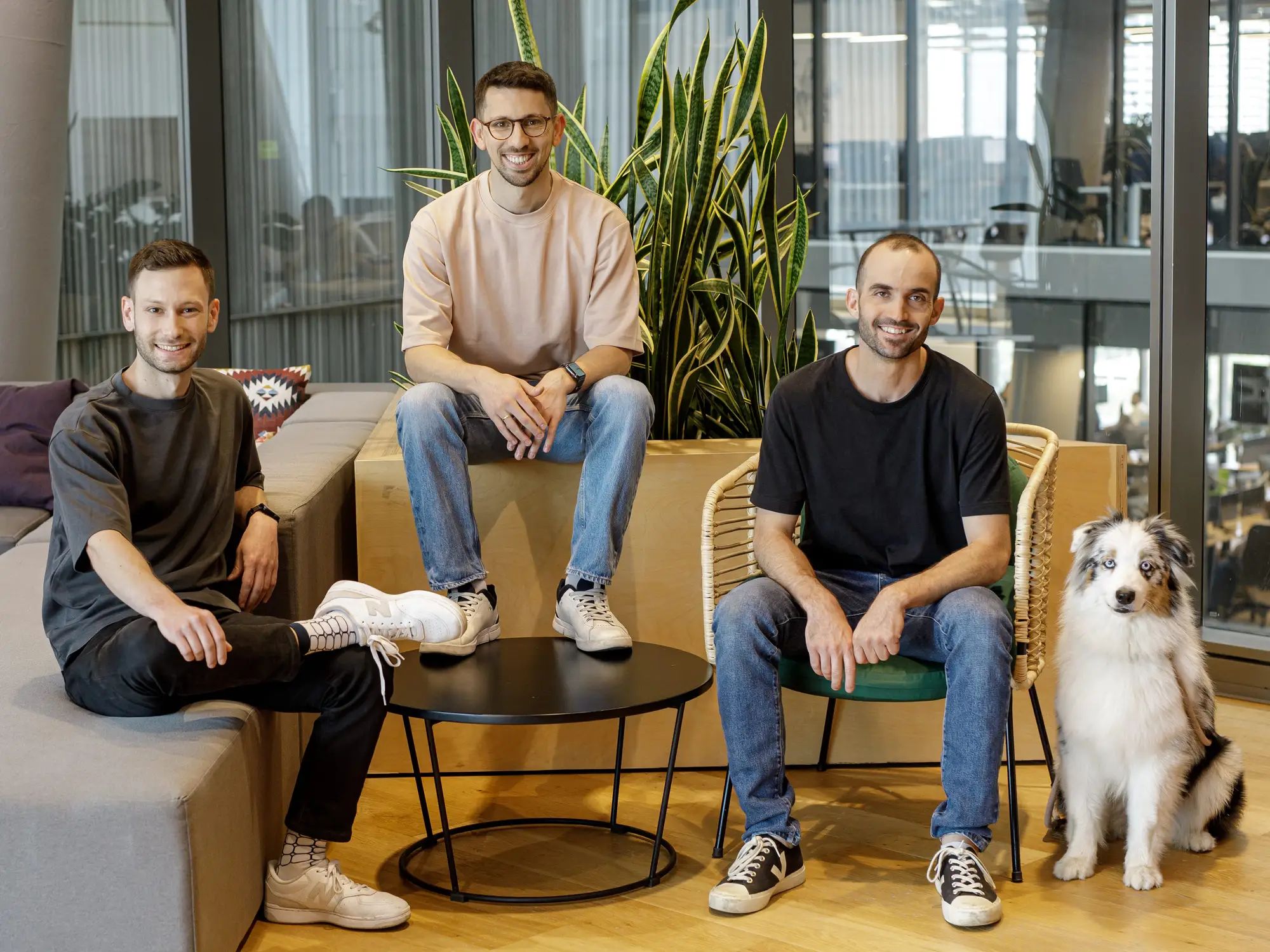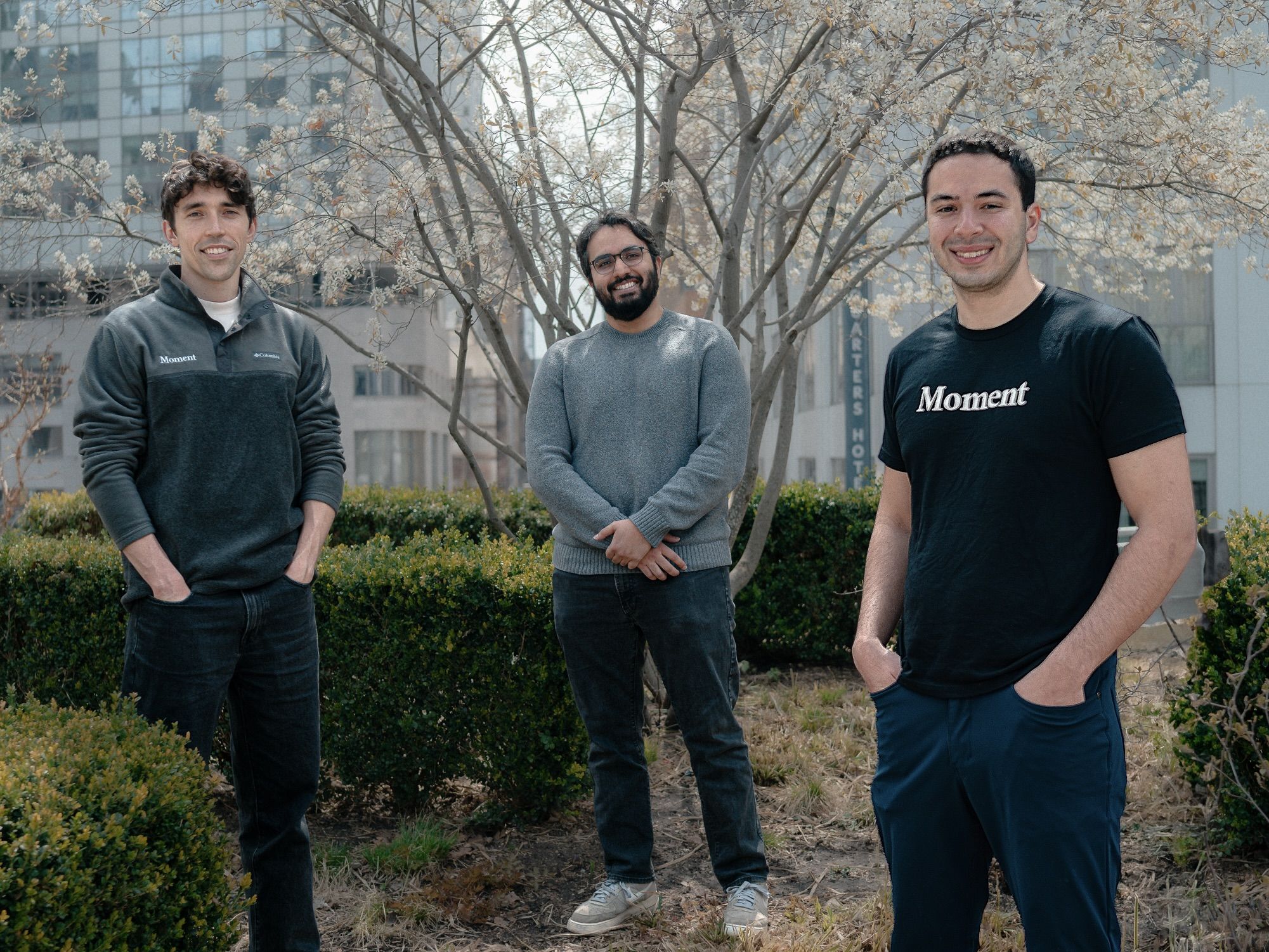Causaly raises $17 million to accelerate medical research, drug discovery and delivery of scientific breakthroughs

We're thrilled to partner with Causaly and welcome Yiannis, Artur and the team to the Index Family.
Causaly, the London-based company that allows researchers and specialists to intuitively map and navigate the intricate landscape of biomedical research, has raised $17 million from investors to grow its team and expand into new markets. Venture capital firm Index Ventures led the Series A investment, joined by Marathon, Pentech and EBRD. Carlos Gonzalez-Cadenas, partner at Index, joins the board.
Founded in 2018, Causaly’s platform deploys machine learning to quickly and easily discover meaningful relationships in the overwhelming thicket of human health data – currently published in tens of millions of public, licensed and proprietary documents. Its technology is the fastest way for world-leading researchers to find evidence, explore hidden connections between complex physiological mechanisms and make new predictions in biomedical science. The need for this ‘operating system’ for biomedical data has become particularly acute as the rise of precision medicine – coupled with the slower pace of new drug discovery – has placed extra pressure on researchers and pharmaceutical companies to find innovative treatments for patients.
Causaly is already working with nine large pharmaceutical companies, including Gilead, UCB and Novartis, as well as institutions such as the National Institute of Environmental Health Sciences. At one of their major global clients, 1,500 employees are using Causaly for drug research, safety and development. And while Causaly is currently focused on the pharmaceutical sector, its technology has a wide range of potential applications, including healthcare, cosmetics, consumer goods and any industry that touches human health.
Causaly’s founders, Artur Saudabayev (CTO) and Yiannis Kiachopoulos (CEO), met on an intensive summer programme at Singularity University in California. With backgrounds spanning consulting, computer science and natural language processing, the pair realised that advances in machine learning meant it should be possible for researchers to spend less time simply absorbing literature, and more time developing solutions. Causaly is a model of how machine learning and human intellect can work side-by-side – with algorithms synthesising information in order to free up humans’ cognitive resources to think more creatively and critically.
‘Finding a new drug can take over a decade in research, development and clinical trials, and requires thousands of experts working together with complex evidence,’ says Kiachopoulos. ‘Causaly is the first platform to map correlations and relationships within scientific data, allowing researchers and scientists to innovate rather than having to laboriously find the relationships themselves. This means better decisions about which research areas to prioritise and faster learning cycles. Switching from a ‘standard’ database of documents to Causaly is like going from using a rolodex of phone numbers to having a smartphone. It’s intuitive, interactive, and shows you where you want to go.’
Biomedical information – spanning scientific literature, regulatory documents, clinical trials and proprietary research – is growing exponentially, and humans are struggling to keep up. Increasingly, biomedical experts are using new insights from genes and biomarkers to tailor novel treatments for specific patient groups and individuals. The complexity of these new medical frontiers adds to the human burden of trying to absorb all the necessary knowledge required to make an original intervention or discovery. Causaly helps overcome this informational bottleneck by applying sophisticated algorithms that mimic human reading and extract the meanings encoded in language, such as the distinction between a treatment and a side-effect.
‘Causaly’s platform transforms the biomedical workflow from one of “search, read, and synthesise” to “ask questions and analyse,”’ says Carlos Gonzalez-Cadenas, partner at Index Ventures. ‘Causaly allows researchers to ask extremely complex questions easily, and get results that would have been nearly impossible otherwise. In an era when Covid has reminded us of the significance of biomedical innovation, Causaly is poised to help unleash the potential of new research for the benefit of humanity.’
One significant use-case for Causaly is the process of screening for biomarkers that are associated with particular diseases or their relationship to treatment response. If a company already owns a drug or compound, it often wants to know which other patient groups might benefit from repurposing that drug activity. This typically takes weeks to months of work, and is prone to missing important discoveries due to the large amount of literature to trawl through. Causaly’s Clients have shaved off 80% of the time for biomarker screenings and the technology has proposed innovative solutions when identifying possible applications for cancer treatments.
‘Causaly is the latest example of humans using technology to improve our relationship to knowledge,’ Kiachopoulos says. ‘After Gutenberg invented the printing press, libraries became a way to categorise all the new information and make it manageable. Then with the digital revolution, libraries moved online, turning into documents and databases. Now we need to move a step beyond static repositories of documents towards much richer, multidimensional and interactive modes of knowledge discovery.’
Causaly currently employs around 40 people, spread between London and Greece. With the new injection of capital, it plans to expand its technology team, grow its sales team to allow it to expand into the US, and increase its capacity to work with clients to generate insights from private, proprietary data.
About Causaly
Founded in 2018, Causaly’s mission is to transform how humans can find, visualise and interpret biomedical knowledge, to accelerate solutions for some of the greatest challenges we face in human health. Causaly acts as an operating system for biomedical and health data that empowers researchers to effortlessly identify new research avenues and innovative drug development opportunities. Its technology mimics human reading, and digests tens of millions of documents into an Enterprise Knowledge Graph allowing researchers and decision-makers to answer questions they can’t answer anywhere else. To learn more, visit www.causaly.com.
Published — May 20, 2021

